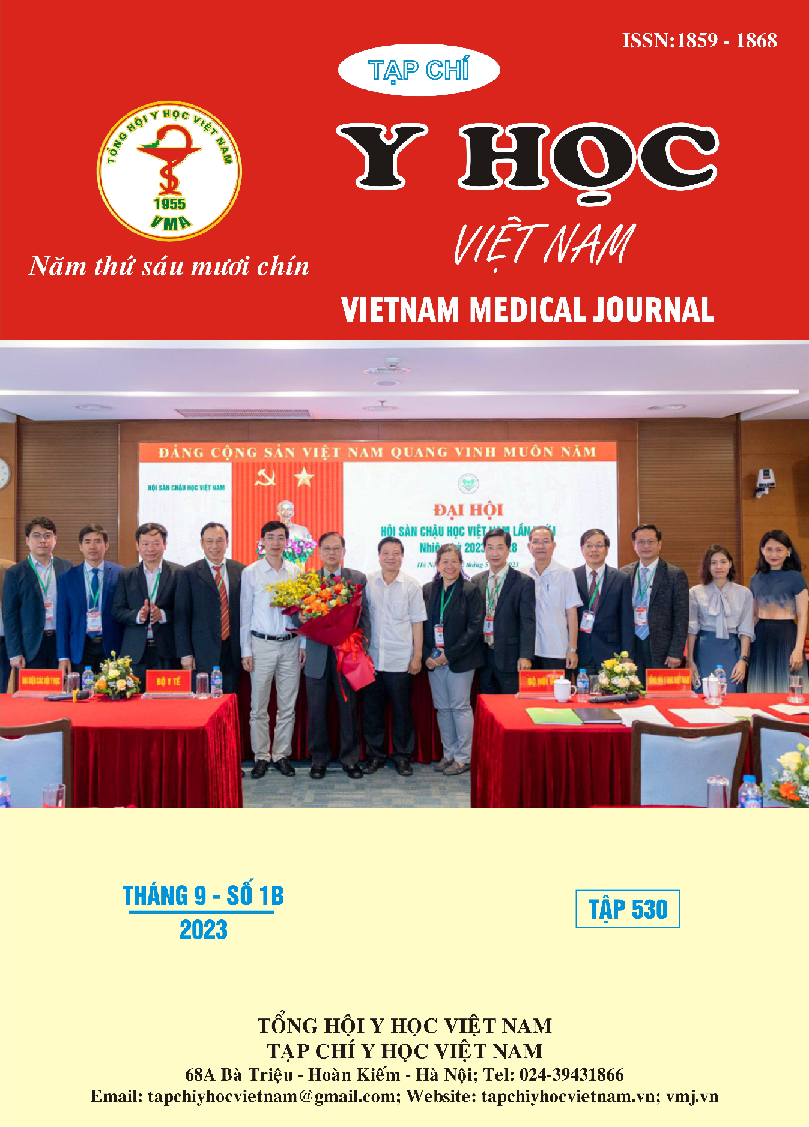THE BACTERIAL CAUSING NEONATAL SEPSIS AT THE NATIONAL HOSPITAL OF PEDIATRICS
Main Article Content
Abstract
Objectives: This study aimed to determine the bacterial causing neonatal sepsis. Method: A prospective, cross-sectional descriptive study, including 202 neonates who treated at Neonatal Center of National Hospital of Pediatrics from January 1, 2021, to December 31, 2022. These patients were diagnosed with neonatal sepsis (less than 72 hours postpartum) and had positive blood culture results. All patients in the present study were divided into 2 groups: early onset sepsis (less than 72 hours postpartum) and late onset sepsis (over than 72 hours postpartum). Results: The rates of infants with early onset sepsis and late onset sepsis were 15.5% and 84.5% respectively. Streptococcus spp is the most common cause of early onset sepsis. Gram-negative bacteria group is the most common cause of late onset sepsis, in which Klebsiella pneumoniae accounts for the highest rate with 35.6%. Full-term infants have the higher risk of developing Streptococcus spp, Staphylococcus aureus, and Escherichia coli infection. Whereas Klebsiella pneumoniae and Serratia marcescens are more common in preterm newborns. Conclusion: Most of pathogens are the negative bacterial generally, particularly in the late onset sepsis group. Klebsiella pneumoniae and Streptococcus spp remain the most common bacterial pathogens.
Article Details
Keywords
Neonatal sepsis, newborn, bacterial.
References
2. The global burden of paediatric and neonatal sepsis: a systematic review - PubMed. Accessed July 20, 2023. https://pubmed.ncbi.nlm.nih.gov/29508706/
3. EMA. Expert meeting on neonatal and paediatric sepsis. European Medicines Agency. Published September 17, 2018. Accessed July 20, 2023. https://www.ema.europa.eu/en/events/expert-meeting-neonatal-paediatric-sepsis
4. Dũng HĐ, Vân NT. Tình trạng kháng kháng sinh của một số vi khuẩn gây nhiễm khuẩn huyết sơ sinh tại bệnh viện Phụ sản Trung ương. Published online 2020.
5. Tessema B, Lippmann N, Knüpfer M, Sack U, König B. Antibiotic Resistance Patterns of Bacterial Isolates from Neonatal Sepsis Patients at University Hospital of Leipzig, Germany. Antibiotics (Basel). 2021; 10(3): 323. doi: 10. 3390/ antibiotics10030323
6. Pokhrel B, Koirala T, Shah G et al. Bacteriological profile and antibiotic susceptibility of neonatal sepsis in neonatal intensive care unit of a tertiary hospital in Nepal. BMC Pediatr. 2018;18:208. doi:10.1186/s12887-018-1176-x
7. Singh T, Barnes EH, Isaacs D, Australian Study Group for Neonatal Infections. Early-onset neonatal infections in Australia and New Zealand, 2002-2012. Arch Dis Child Fetal Neonatal Ed. 2019;104(3):F248-F252. doi:10.1136/archdischild-2017-314671
8. Fuchs A, Bielicki J, Mathur S et al. Reviewing the WHO guidelines for antibiotic use for sepsis in neonates and children. Paediatr Int Child Health. 2018; 38 (Suppl 1): S3-S15. doi: 10.1080/ 20469047. 2017. 1408738


